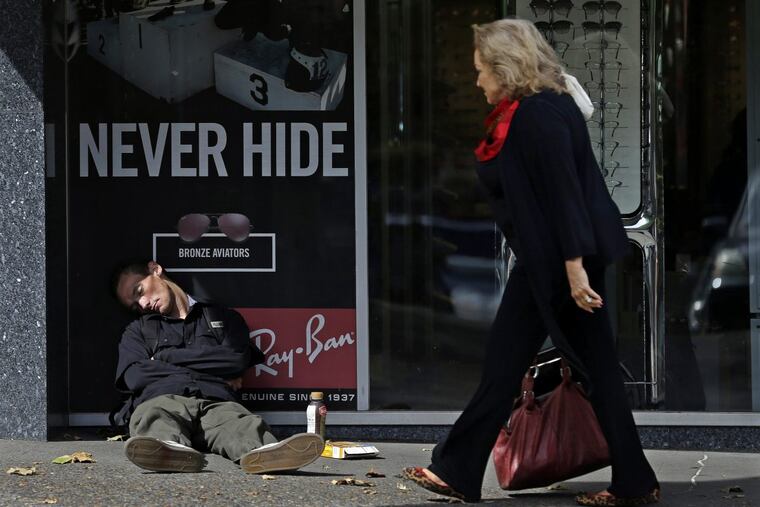Christmas wish: Reduce poverty with education, jobs, volunteerism, and advocacy
In this season, how can we move to actions that bring real change to individuals and families experiencing poverty?

Across the region this month hundreds of organizations and thousands of people will give time and treasure to assist individuals and families in need. As someone who works in social services in Philadelphia, I am thankful for these good and kind acts.
But an uncomfortable truth persists in this season of peace, hope, and joy. Philadelphia has the highest poverty level of any major city in America, upwards of 25 percent. In nearby communities such as Camden, Trenton, Darby, and Chester, the rates are higher and largely unchanged since the 1960s. Despite billions of dollars, intergenerational poverty persists.
Our society has been in the poverty "maintenance" business with private and public spending and associated public policies. And pockets of excellence exist where individuals and organizations have initiated successful programs to lift individuals up and assist them on their journey out of poverty. But even with evidence of impact, a meaningful scale has not happened.
In this season, how can we move from acts of maintenance to actions that bring real change to individuals and families experiencing poverty?
Education: Get educated on the issues of poverty — not the myths. Understand that poverty robs individuals of opportunity many of us take for granted. No one wants to live in poverty. In fact, the people we work with are some of the most resilient I know. Understand how public policy impacts education, workforce development, housing, employment, and wellness. Understand that race and gender are significant issues, uncomfortable as that may be. Understand the perpetual crisis caused by poverty makes it difficult to attend school, hold a job, and live a productive life. Our goal should be to help individuals move permanently out of the crisis they experience.
Volunteer: Find a hands-on opportunity to volunteer and provide financial support. Look for an organization that focuses on impacts, not maintenance. Understand their approach and hold them accountable for results. Get involved throughout the year. Steady and consistent support moves the needle. The work is complicated, and the private sector can move more quickly than the public sector on these issues.
Jobs: If you are in a position to do so, make a conscious decision to hire individuals experiencing poverty, pay a living wage, and offer consistent hours. Here the private sector can have a major impact. The way out of poverty is a job. Many agencies can help potential hires develop the hard and soft skills they need. Job creation and a healthy economy raise all boats. But we need to focus on the "all" part. Statistically, 10,000 hires a year at a living wage can halve poverty in the region in a generation. There is no more productive tool to address intergenerational poverty. Imagine the long-term impact that redirected dollars could have on improved education and infrastructure.
Advocacy: Finally, advocate. Hold the political process accountable and support candidates who will drive needed changes in government policy. Government programs need to match best practices and results and reflect the same quality standards of any well-run business. Support public/private partnerships. Support social impact investing. Understand that if we do not deal with poverty as a society, it will consume us. Currently we are not driving meaningful change at scale. Poverty is not someone else's issue. It is not a right or a left matter. It's a shared issue affecting all Americans, on many levels.
Let me be clear — individuals, families, and children in poverty need our support (many just to get through the day, week or month). But it is only the start to a permanent solution. We need to do more than help people maintain their lives. We need to bring not just hope, but the tools and support necessary to change lives.
We know that when we meet people where they are and offer coaching and support based on science and research, individuals can experience meaningful change. The numbers require that we do this at scale and scale requires that we all bring our gifts together to make the lift possible.
Isn't that what Christmas is really about?
Dave Griffith, chairman of the Modern Group and other firms in the region, is the first nonclergy, nonsocial worker to lead the 147-year-old Episcopal Community Services of Philadelphia. He blogs at www.wearmuddyboots.